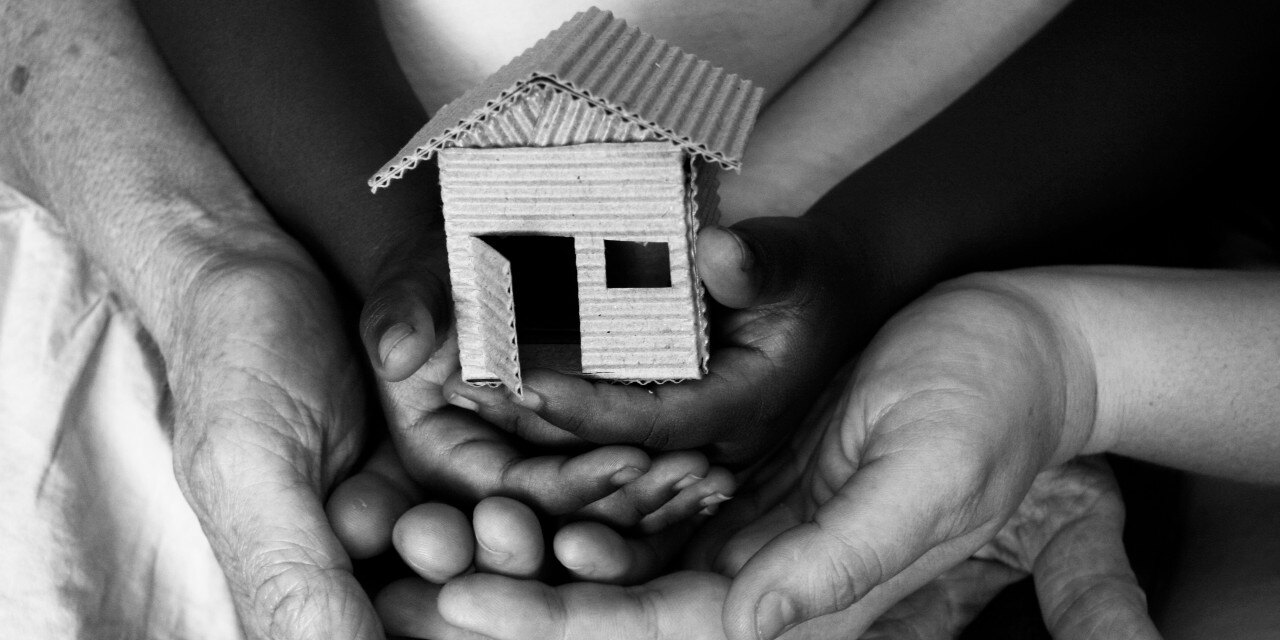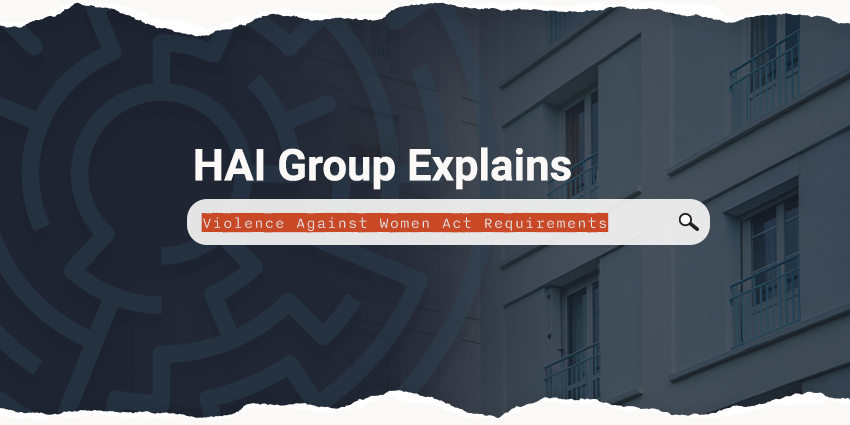VAWA 2022 Q&A: Addressing Key Questions for Housing Providers

The Violence Against Women Act (VAWA), enacted in 1994, provides housing protections to survivors of domestic violence, dating violence, sexual assault, and stalking, regardless of sex, sexual orientation, or gender identity. Despite its long-standing presence, many public and affordable housing providers still have questions about implementing VAWA, especially after the act's reauthorization in 2022, which expanded the U.S. Department of Housing and Urban Development's (HUD) enforcement authority. Since then, HUD has initiated multiple cases involving non-compliant housing providers.
Dr. Deme Hill, a principal consultant at Advocates for Human Potential, has served U.S. communities for the last three decades, focusing on housing, homelessness, criminal justice, and behavioral health initiatives. In her training on the topic, she emphasizes VAWA's life-saving potential and the importance of adhering to its rules to protect survivors. However, she acknowledges the complexities involved in applying VAWA regulations.
 Dr. Deme Hill | Advocates for Human Potential
Dr. Deme Hill | Advocates for Human Potential
During a June training session for HAI Group policyholders, Hill explained that while the law is clear, situations covered by VAWA are often complex. This blog addresses key questions raised during the session and provides insights into navigating VAWA guidelines. Watch the session in its entirety here.
VAWA 2022 at a glance
Under VAWA 2022, applicants and residents of HUD rental assistance programs may not be denied housing, evicted, or have their housing assistance terminated due to experiences of domestic violence, dating violence, sexual assault, or stalking. Survivors are entitled to remedies such as requesting emergency transfers for safety reasons.
Critical protections for survivors:
- Non-discrimination: Survivors cannot be denied admission, evicted, or have their assistance terminated due to the violence committed against them.
- Emergency transfers: Survivors can request an emergency transfer for safety reasons.
- Continued assistance: Survivors with Section 8 housing choice vouchers must be allowed to move with continued assistance.
- Self-certification: Survivors can provide proof to the housing provider by self-certifying using the HUD VAWA self-certification form.
- Confidentiality: Survivors have the right to strict confidentiality regarding their status.
- Lease bifurcation: Housing providers can remove a perpetrator from the lease while allowing the survivor to remain.
- Protection from retaliation: Survivors cannot be coerced, intimidated, threatened, or retaliated against for seeking VAWA protections.
Questions and answers on VAWA 2022 compliance
The questions below were posed during Hill’s June training session for HAI Group policyholders. The answers are for informational purposes only and should not be taken as legal advice. For specific legal concerns, we recommend consulting with a legal professional.
Question 1: What does an emergency transfer look like for a VAWA client?
According to HUD, housing providers must have an emergency transfer plan allowing tenants who are victims to transfer to another available and safe unit within the same program if they believe they are in immediate danger or were sexually assaulted on the premises within the prior 90 days. HUD provides a model emergency transfer plan to assist housing providers.
Question 2: What happens when someone puts in a VAWA claim and needs to move, but doesn't?
Hill said clients have a choice on whether to move. She recommends inquiring with the resident about the move and determining what constitutes a "safe unit" for the resident.
Question 3: Can a public housing property manager offer counseling services to a VAWA victim, and if so, is there a list of available counseling resources?
Hill said domestic violence providers vary by location. She recommends coordinating with a local Continuum of Care entity, which may be able to connect residents with local domestic violence resources.
Question 4: How does lease bifurcation work? Can a head of household be removed due to VAWA abuse?
According to HUD, housing providers can remove a household member from a lease if they engage in criminal activity directly relating to VAWA violence/abuse. This removal process is known as "bifurcating" a lease, and must be done consistent with applicable federal, state, or local laws and the requirements of your covered housing program. If the removed member made the household eligible for assistance, those remaining must be given a reasonable time to establish eligibility or find other housing. While this is generally 90 days, it may be a different time, depending on the housing program.
For more details, visit HUD's lease bifurcation overview or view the applicable section of the VAWA statute.
Question 5: Is documenting VAWA information in a tenant's file appropriate?
Hill said that confidential VAWA information needs to be documented to ensure you meet the requirements of the law. If your agency has a policy against placing this information in an individual file, she recommends creating a secure place to keep confidential information, as prescribed by VAWA's language regarding documentation of domestic violence, dating violence, sexual assault, or stalking incidents.
Question 6: Does claiming VAWA move an applicant to the top of the waitlist?
A HUD notice that provides guidance on establishing waiting list preferences states that agencies may establish waiting list preferences for victims of VAWA violence/abuse. HUD encourages housing providers to create a system of local preferences using internal data and by working collaboratively with local community organizations and government offices.
Question 7: Can a witness to a violent crime claim VAWA?
Hill said that for a witness to claim VAWA, they must meet the criteria of experiencing domestic violence, dating violence, sexual assault, or stalking. She cited the federal definitions of dating partners, dating violence, and domestic violence, which can be found here.
Question 8: Can a housing provider ask for self-certification that VAWA violence occurred within a recent timeframe, such as the last 90 days?
Hill said HUD does not place a time restriction on what it means to be a former spouse or intimate partner, citing a section of the Federal Register (see page 16) that states in part:
"VAWA does not limit domestic violence to those acts committed by an individual who is a current spouse or intimate partner of the victim, but rather expressly provides domestic violence is a crime of violence committed by a current or former spouse or intimate partner. As the statute does not place a time restriction on what it means to be a former spouse or intimate partner, HUD declines to do so."
Question 9: Is there a time limit for participants to locate housing, and can the voucher be extended indefinitely?
Hill advised that housing providers do everything possible to assist VAWA victims in securing housing. She said questions regarding extending vouchers due to VAWA are technical and should be submitted to a HUD project officer or HUD Ask a Question (AAQ). The extension process may also require a change to administrative procedures, Hill added.
Question 10: What if there are conflicting stories about a VAWA claim?
Hill recommends following VAWA's documentation procedures and erring caution regarding third-party information, particularly if allegations cannot be substantiated. She suggests reviewing page 15 of this HUD notification, which states that housing "providers are prohibited from conducting further fact-finding" to verify the validity of a VAWA claim. However, the document notes that if the housing provider "regularly receives reliable information" from verifiable sources like surveillance footage or police reports, the housing provider may require third-party documentation of victim status.
Question 11: How do you help applicants who have yet to receive assistance?
Hill suggests notifying applicants of their rights under VAWA and reviewing internal procedures on how your agency manages potential VAWA applicants. She recommends reviewing page 37 of this HUD notice, which outlines the process for establishing waiting list preferences.
Question 12: A VAWA victim doesn't feel safe transferring to a new location where the abuser has family. How should this be resolved?
As part of an emergency transfer plan, Hill said, victims should be moved to a safe unit, which refers to a unit that the victim believes is safe. She recommends following internal or external emergency transfer plan procedures outlined in the VAWA statute.
Question 13: Can a stranger be considered a VAWA perpetrator?
The perpetrator must meet the relationship criteria defined by the federal government, which can be found here.
Question 14: How do we ensure move requests are truly VAWA-related and not just workarounds for unpaid rent?
Hill acknowledged this concern, noting that victims can self-certify under the latest iteration of VAWA, which might lead to more individuals coming forward without having sought law enforcement assistance. She emphasized that housing providers need to understand that unpaid rent could be linked to domestic violence. Hill mentioned that some agencies have a landlord damages fund to help cover unpaid rent and suggested looking into other programs that might offer similar assistance. She advised that these scenarios should be managed on a case-by-case basis.
For more details and resources, visit HUD's VAWA website. If you are in danger, please call 911 or a national hotline.
This article is for general informational purposes only. HAI Group makes no representations or warranty, express or implied. Your use of the information is at your own discretion and risk. HAI Group nor any of the authors, contributors, administrators, or anyone else connected with HAI Group, in any way whatsoever, is responsible for your use of the information contained herein. Our purpose is to provide an overview of the specific subject matter, and our recommendation is to play it safe and consult with a professional specializing in the specific subject matter for guidance.


